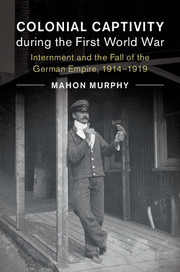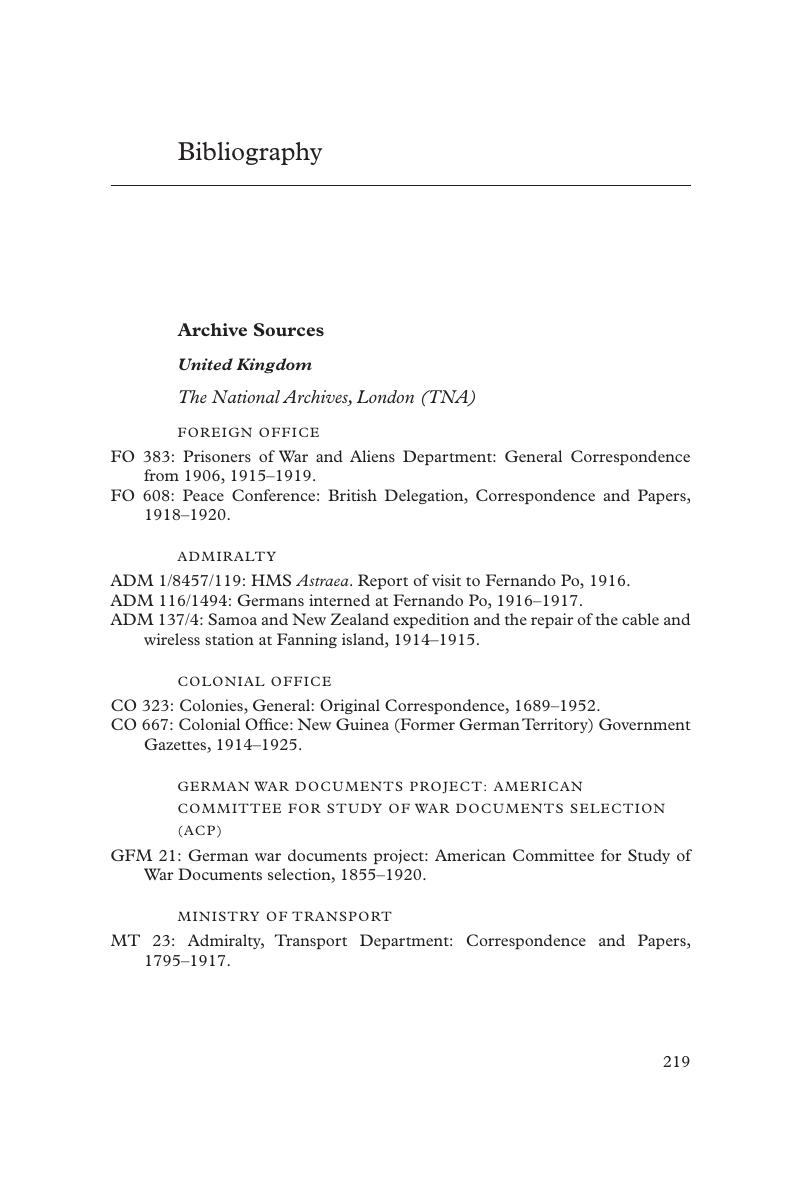 Colonial Captivity during the First World War
Colonial Captivity during the First World War Book contents
- Colonial Captivity during the First World War
- Studies in the Social and Cultural History of Modern Warfare
- Colonial Captivity during the First World War
- Copyright page
- Contents
- Maps
- Acknowledgements
- Abbreviations
- Maps
- Introduction
- Part I Empire, Internment, and the First World War
- Part II The Experience of Internment
- Part III Global Connections
- Conclusion
- Bibliography
- Index
- References
Bibliography
Published online by Cambridge University Press: 05 September 2017
- Colonial Captivity during the First World War
- Studies in the Social and Cultural History of Modern Warfare
- Colonial Captivity during the First World War
- Copyright page
- Contents
- Maps
- Acknowledgements
- Abbreviations
- Maps
- Introduction
- Part I Empire, Internment, and the First World War
- Part II The Experience of Internment
- Part III Global Connections
- Conclusion
- Bibliography
- Index
- References
Summary

- Type
- Chapter
- Information
- Colonial Captivity during the First World WarInternment and the Fall of the German Empire, 1914–1919, pp. 219 - 238Publisher: Cambridge University PressPrint publication year: 2017


